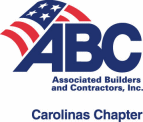I recently came across this blog post from The Council of State Governments’ “Knowledge Center” blog. The post forecasts the 2013 transportation funding challenges and priorities in 20 different states, North Carolina included. Here’s what the post had to say about what might be expected once former Charlotte Mayor Pat McCrory (R) becomes our governor in January:
The Associated Press recently looked at where incoming Gov. Pat McCrory (the longtime Charlotte Mayor) stands on transportation issues: “Don’t punish cities that must spend lots of money improving interstates, he says. Develop decades-long construction plans. Keep politics out of funding road projects and work with the private sector. And don’t be afraid to try something risky, like the Republican did in 1998 by lobbying for a referendum by voters that raised the local sales tax to help build Charlotte’s first light rail line.” Transportation advocates in the state are reportedly encouraged that the governor-elect, who championed transportation’s ability to improve the economy as Mayor of Charlotte, could endorse more sustainable transportation revenue sources and win support from legislators. But, as a Business Journal article pointed out earlier this fall, North Carolina’s gas tax is already among the highest in the nation and while the state has turned to tolling to help finance some projects, they have faced challenges with a couple of toll road projects.
“Challenges with a couple of toll road projects” would be an understatement. As this blog previously reported earlier this year (see here and here), the Department of Transportation lost a legal battle concerning the Monroe Bypass outside of Charlotte, and political opposition to tolling I-95 to fund its rehabilitation is broad, strong and vociferous.
Still, North Carolina’s motoring public demands safe, non-congested roadways, and North Carolina’s already-high gas tax is insufficient to meet that demand. Based on Governor-Elect McCrory’s expressed desire to work with the private sector in improving North Carolina’s road network, I suspect movement toward public-private partnerships is inevitable in the years to come. And if that suspicion is accurate, all of us in the construction industry will need to play a part in ensuring that P3s work for all stakeholders, not just the NCDOT and its concessionaires, but also the contractors, subcontractors and suppliers whose labor and materials will keep North Carolina moving in 2013 and beyond.






